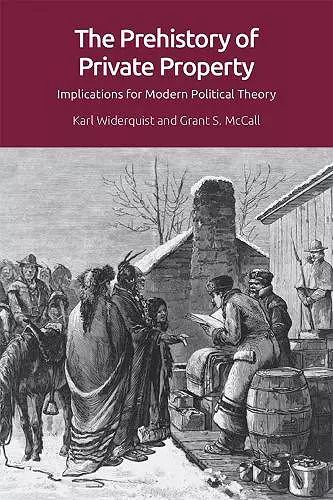The Prehistory of Private Property
Implications for Modern Political Theory
Karl Widerquist author Grant S McCall author
Format:Paperback
Publisher:Edinburgh University Press
Published:5th Dec '22
Should be back in stock very soon

This book debunks three false claims commonly accepted by contemporary political philosophers regarding property systems: that inequality is natural, inevitable, or incompatible with freedom; that capitalism is more consistent with negative freedom than any other conceivable economic system; and that the normative principles of appropriation and voluntary transfer applied in the world in which we live support a capitalist system with strong, individualist and unequal private property rights. The authors review the history of the use and importance of these claims in philosophy, and use thorough anthropological and historical evidence to refute them. They show that societies with common-property systems maintaining strong equality and extensive freedom were initially nearly ubiquitous around the world, and that the private property rights system was established through a long series of violent state-sponsored aggressions.
This book fills an important interdisciplinary need in joining anthropology to philosophy. It continues the argument Widenquist and McCall started in their earlier book, Prehistoric Myths in Modern Political Philosophy. Both books debunk out-of-date and incorrect assumptions about human society that somehow remain foundational in political philosophy. The prior book focused on the ideas of Thomas Hobbes, and The Prehistory of Private Property develops and expands this line of thought. The authors do a real service by opening up comparative scholarship to new perspectives about the inevitability of inequality, capitalist markets, and private property. Anyone interested in how human societies operate—and how western scholars have portrayed them—will find this a compelling read. * Michael E. Smith, Arizona State University *
ISBN: 9781474447430
Dimensions: unknown
Weight: unknown
288 pages